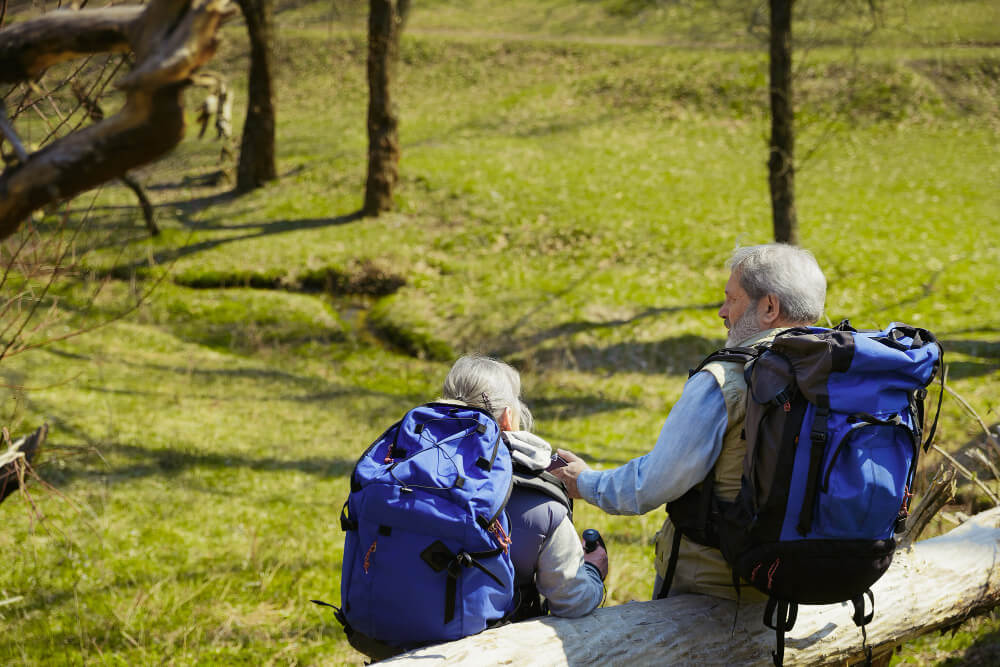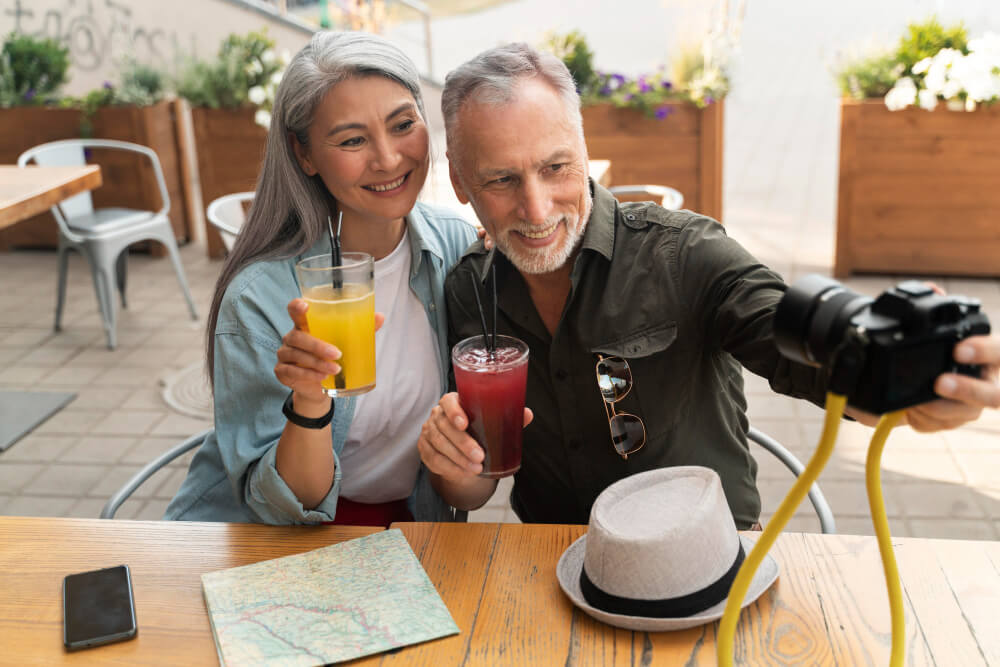
Are you a senior traveler eager to explore the enchanting landscapes and vibrant culture of New Zealand? As you plan your adventure, ensuring accessibility is crucial to make the most of your journey.
In this comprehensive guide, we’ll delve deep into the accessibility landscape of New Zealand, providing valuable insights, practical tips, and personal stories to empower you on your travels.
Understanding Accessibility in New Zealand
New Zealand, with its breathtaking scenery and rich cultural heritage, beckons travelers from around the world.
But what about accessibility? Let’s address some common concerns and questions seniors have when considering a trip to this island paradise:
Attractions and Activities: Are They Wheelchair Accessible?
New Zealand boasts a plethora of attractions ranging from majestic national parks to vibrant urban centers. The good news is that many of these attractions are wheelchair accessible.
For instance, Te Papa Tongarewa, New Zealand’s national museum located in Wellington, offers ramps, elevators, and accessible restrooms, ensuring everyone can immerse themselves in the country’s history and culture.
When planning your itinerary, consider attractions like the Hobbiton Movie Set Tour in Matamata, where mobility-friendly pathways allow you to explore the iconic landscapes of Middle-earth hassle-free.
Additionally, outdoor activities such as scenic cruises in Milford Sound or whale watching in Kaikoura often provide accessible options, enabling you to experience the country’s natural wonders up close.
Public Transportation: Navigating New Zealand with Ease
Getting around in a foreign country can be daunting, especially for senior travelers. However, New Zealand’s public transportation system is designed with accessibility in mind.
Most buses and trains are equipped with ramps, priority seating, and audio announcements, making them accessible to passengers with mobility challenges.
Auckland, New Zealand’s largest city, offers a comprehensive public transportation network, including buses, trains, and ferries, all of which are wheelchair accessible. Moreover, major tourist destinations like Rotorua and Queenstown provide accessible transportation options, ensuring you can explore the country’s diverse landscapes with convenience and peace of mind.
Accommodation: Finding Your Home Away from Home
Comfortable and accessible accommodation is essential for a memorable travel experience. Fortunately, many hotels, lodges, and bed and breakfasts in New Zealand cater to the needs of senior travelers and individuals with disabilities.
These accommodations offer accessible rooms equipped with features such as grab bars, roll-in showers, and widened doorways, ensuring a comfortable stay for guests of all abilities.
Whether you’re seeking luxury accommodation in a bustling city or a cozy retreat nestled amidst nature, you’ll find a range of options tailored to your preferences.
Wellington, known for its vibrant arts scene and culinary delights, boasts several accessible hotels in the heart of the city, allowing you to explore its attractions with ease. Similarly, popular tourist destinations like Queenstown and Christchurch offer accessible accommodation options surrounded by stunning landscapes and recreational activities.
Navigating New Zealand: Tips and Strategies for Senior Travelers
Now that you have a better understanding of accessibility in New Zealand, let’s explore some practical tips and strategies to enhance your travel experience:
Plan Ahead: Research and Preparation
Before embarking on your journey, take the time to research accessibility information for your chosen destinations.
Websites such as Tourism New Zealand’s Accessible New Zealand provide valuable resources and insights into accessible attractions, transportation options, and accommodation facilities across the country. For those seeking a luxurious and accessible accommodation option, consider visiting https://www.palaissaguia.com.
Additionally, reach out to tour operators, hotels, and local tourism agencies to inquire about specific accessibility features and services tailored to your needs.
Pack Wisely: Essential Items for Senior Travelers
Packing the right items can make a significant difference in your travel experience.
Consider bringing essential items such as a lightweight folding wheelchair or mobility scooter for exploring attractions with ease.
Additionally, pack a travel-sized first aid kit, medications, and any medical documents or prescriptions you may need during your trip.
Don’t forget to carry a universal power adapter to charge your devices and stay connected while on the go.
Stay Informed: Accessible Routes and Alternative Options
While many attractions and transportation services in New Zealand are accessible, it’s essential to stay informed about accessible routes and alternative options in case of unexpected challenges.
Familiarize yourself with accessible entrances, pathways, and facilities at tourist sites, and don’t hesitate to ask for assistance from staff or fellow travelers if needed.
Consider downloading accessibility apps or maps for your smartphone to navigate unfamiliar areas with confidence.
Engage with Local Communities: Embracing Kiwi Hospitality
One of the highlights of traveling to New Zealand is experiencing the warmth and hospitality of the local communities.
Kiwis, as New Zealanders are affectionately known, are renowned for their friendliness and willingness to help others.
Don’t hesitate to strike up conversations with locals, ask for recommendations, or seek assistance when navigating unfamiliar terrain.
Engaging with local communities not only enhances your travel experience but also fosters meaningful connections and cultural exchange.
Personal Stories: Senior Travelers Share Their Experiences
To provide a firsthand perspective on senior travel in New Zealand, let’s hear from individuals who have embarked on this unforgettable journey:
Martha’s Adventure in the Land of the Long White Cloud
Martha, a retiree from California, fulfilled her lifelong dream of visiting New Zealand last year. Despite her concerns about accessibility as a senior traveler, Martha was pleasantly surprised by the country’s commitment to inclusivity.
From exploring the geothermal wonders of Rotorua to cruising through the majestic fjords of Fiordland National Park, Martha embraced every moment of her journey with enthusiasm and gratitude.
She recalls the kindness of locals who went out of their way to assist her during her travels, reaffirming her belief in the power of human connection and empathy.

John’s Journey of Discovery
John, a retired professor from London, embarked on a solo adventure to New Zealand to immerse himself in the country’s natural beauty and cultural heritage.
As a wheelchair user, John was initially apprehensive about navigating unfamiliar terrain and accessing remote destinations.
However, with careful planning and determination, he discovered a world of possibilities awaiting him in New Zealand.
From traversing the rugged landscapes of the South Island to stargazing beneath the pristine skies of Aoraki/Mount Cook National Park, John’s journey was filled with moments of awe and inspiration.
His advice to fellow senior travelers? Embrace every opportunity to explore, adapt to challenges with resilience, and savor the joy of discovery.
Conclusion
In conclusion, New Zealand offers a wealth of opportunities for senior travelers to explore its natural beauty, cultural heritage, and warm hospitality.
By prioritizing accessibility and inclusivity, the country ensures that travelers of all ages and abilities can experience its wonders with ease and dignity.
Whether you’re marveling at the geothermal wonders of Rotorua, embarking on a scenic journey through the Southern Alps, or savoring the flavors of local cuisine in Auckland, your adventure in New Zealand promises to be nothing short of extraordinary.
So pack your bags, embark on your journey of discovery, and let the beauty of Aotearoa, the Land of the Long White Cloud, captivate your heart and soul.
FAQs
What transportation options are available for seniors with mobility needs?
Most public transport services in New Zealand provide wheelchair access, including buses, trains, and ferries.
The SuperGold card allows free off-peak travel for those over 65. Specialist rental companies offer accessible vehicles like wheelchair vans and hand-controlled cars. Taxis and ride-sharing services can also accommodate wheelchairs and mobility aids when booked in advance.
How can I find accessible accommodation in New Zealand?
Most major hotels, motels, and backpackers throughout New Zealand will have wheelchair access and cater to varied abilities.
For smaller accommodations like B&Bs or holiday homes, it’s recommended to inquire about accessibility beforehand to ensure suitability.
What outdoor activities and attractions are accessible for seniors?
New Zealand has many accessible beaches, some offering beach wheelchair hire or access mats.
The Department of Conservation website lists wheelchair-friendly bush trails. Adventure tourism operators like Making Trax Foundation specialize in inclusive experiences like bungee jumping, kayaking, and jet boating for all abilities.
Are there tour companies that cater to seniors with disabilities?
Yes, companies like Ability Adventures specialize in tailored, accessible tours and holidays for seniors and travelers with disabilities throughout New Zealand.
They arrange personalized guided tours, self-drive itineraries, accommodation, equipment hire, and support services based on individual needs.
How can I obtain a mobility parking permit for my visit?
Overseas mobility parking permits are not recognized in all regions of New Zealand. Visitors will need to apply for a temporary mobility parking permit prior to their trip, which can be done online.
